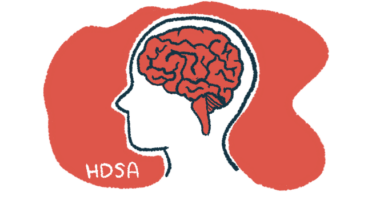Huntington’s Society supporting work aiming at ‘effective’ treatment
Projects by grant winners in US, Canada into genes, patient tissues, brain scans

The Huntington’s Disease Society of America (HDSA) has awarded $898,194 in funding to support six research projects aiming to better understand and find more effective treatments for Huntington’s disease (HD).
Grants were awarded through the HD Human Biology Project, HDSA’s largest research initiative supporting work focused on how Huntington’s occurs in patients, rather than in animals models. Launched in 2013, it has channeled more than $7 million into “patient-centric research” that might realize the society’s goal of better disease therapies.
“Despite the identification of the gene responsible for Huntington’s disease (HD) over 25 years ago, to date there are no effective treatments available to patients to modify disease progression,” the society states on the project’s webpage.
About $7 million given by Huntington’s Society to ‘patient-centric’ research
“From single cells and DNA changes to imaging studies and at-home interventions, this year’s fellows are taking novel approaches to the study of HD in people,” Leora Fox, PhD, the HDSA’s assistant director of research and patient engagement, said in a society press release. “We’re excited to support their efforts towards drug development, identification of biomarkers, and innovative interventions.”
Each grant, open to scientists worldwide but with a preference for starting postdoctoral and clinical investigators, carries an annual award of up to $75,000.
One of the six grants was awarded to Jessica Levesley, PhD, a postdoctoral research fellow at the University of British Columbia in Canada. Her project, “Investigation of the effect and mechanistic drivers of loss of interruption modifier variants in Huntington disease patients,” aims to examine brain tissue from deceased Huntington’s patients carrying a genetic variant at the start of the HTT gene. This variant does not cause the disease, but it has been associated with an earlier age of onset.
The researchers hope to better understand the molecular mechanisms behind its effects and to discover targets for therapies that might delay symptom progression.
Nikhil Ratna, PhD, a postdoctoral scholar at the University of Washington, will lead the project “Bringing a Historical HD Brain Bank into the Single Cell Era.”
Its goal is to update the university’s HD brain bank — a large collection of brain samples donated by people with Huntington’s — to make its clinical information more easily accessible to researchers worldwide. Pilot studies using new technologies to analyze the preserved brains at a single-cell level also will be conducted.
The project “Integrating clinical MRI and ultra-high resolution ex vivo MRI to model laminar anomaly progression in Huntington’s disease” will be led by Xiangrui Zeng, PhD, a research fellow at Massachusetts General Hospital.
Zeng’s project aims to use artificial intelligence to analyze data from brain MRI scans, in order to determine the shape and thickness of different layers in the cerebral cortex — the brain’s outermost region that’s critical for higher cognitive processes. It aims to use these measures to build a model of how Huntington’s affects distinct cortical layers over time, which is not fully understood.
Roy Maimon, PhD, a postdoctoral fellow at the University of California San Diego, received a grant for his project: “Identifying Mechanisms of Adult Neurogenesis by Exploiting Single Cell Spatial Transcriptomics and Application to HD.”
Prior work identified a genetic drug that can promote the conversion of dormant support cells in mouse brains into new nerve cells (neurons). In this project, also supported by the Bev Hartig Huntington’s Disease Foundation, the researchers will test the compound in lab-grown human cells and organoids (cell models) to see if the effects are consistent.
Another grant went to Natalia Pessoa Rocha, PhD, an assistant professor at the University of Texas Health Sciences Center at Houston, for her research project, “Olfactory dysfunction and clinical correlates in patients with Huntington’s disease.”
As a diminished sense of smell is a common sign of Parkinson’s and Alzheimer’s disease, Rocha and colleagues will conduct a pilot study into whether a person’s sense of smell also is impacted by Huntington’s, and if changes in smell abilities follow the disease’s progression.
The sixth awarded project, “Home-based TDCS for cognitive and behavioral symptoms in Huntington’s disease: a pilot feasibility and mechanistic study,” will be led by Thiago Macedo e Cordeiro, MD, a postdoctoral research fellow also at Houston’s University of Texas Health Sciences Center.
It will test whether a home-based, noninvasive brain stimulation method, called transcranial direct current stimulation, can help to relieve cognitive and emotional symptoms of Huntington’s.
“HDSA strives to support human-centric research all along the pipeline,” said Arik Johnson, a clinical psychologist and the HDSA’s chief mission officer. “Every project funded through this initiative reflects the collaborative efforts of people living with HD, whether as direct participants or generous donors of samples or tissue.”
Information for 2024 grants awards should be available on the HD Human Biology Project’s website when the application period opens in March.







